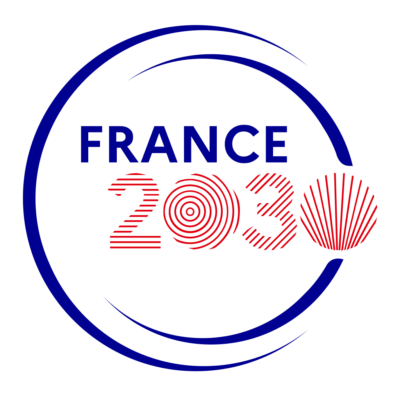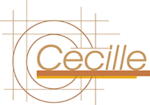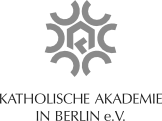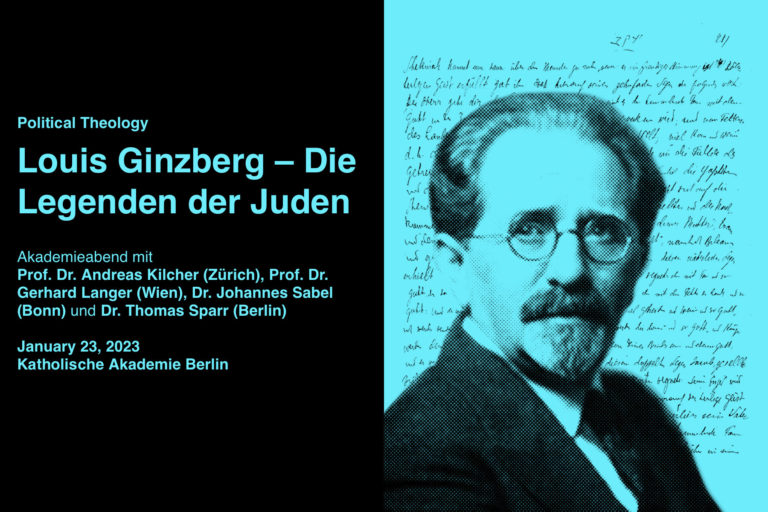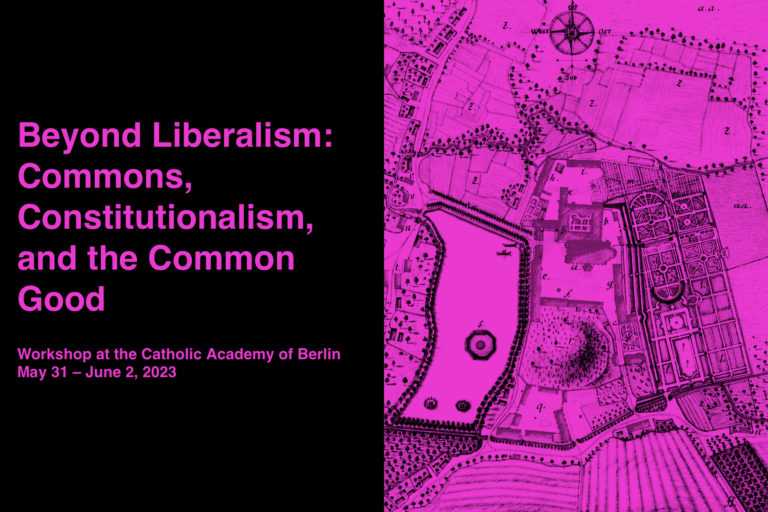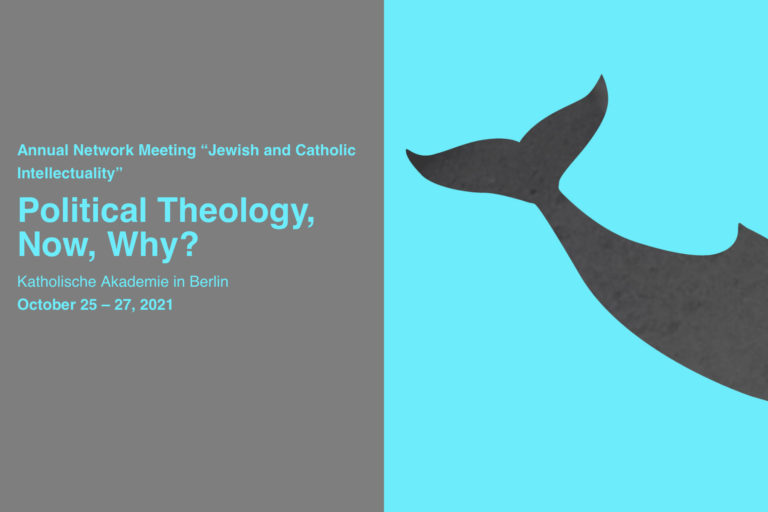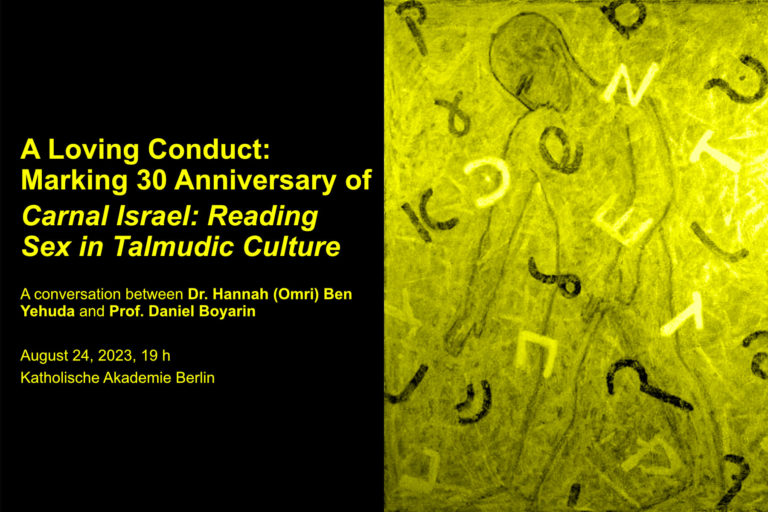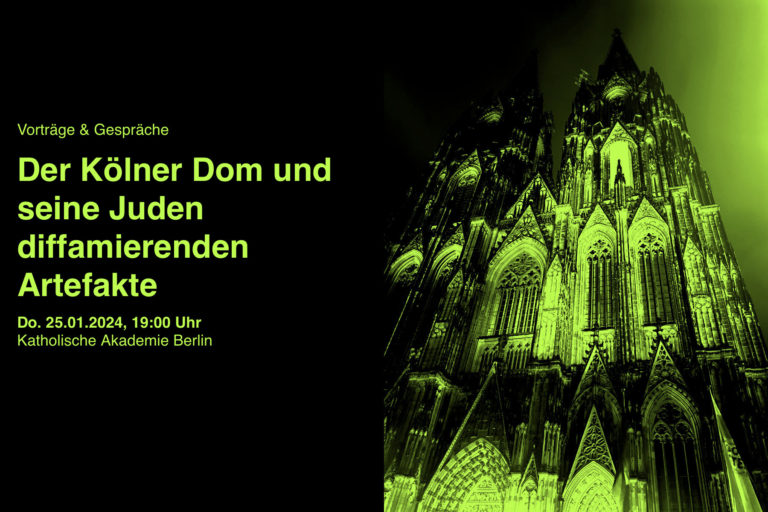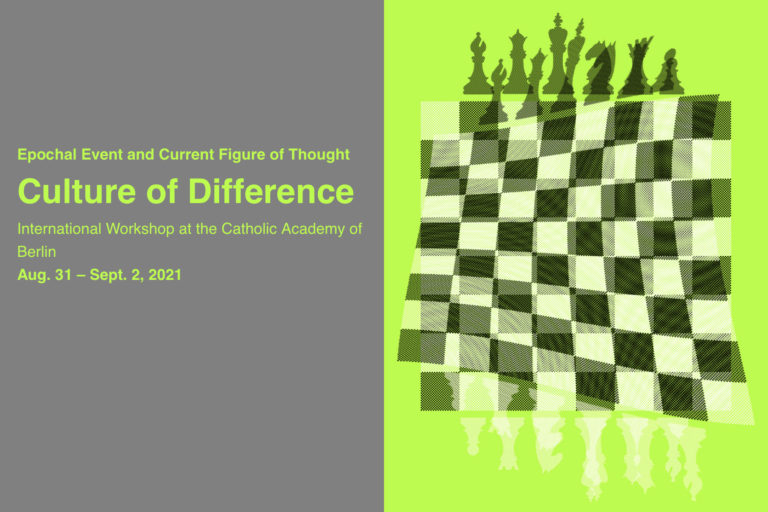International Conference
L’école de pensée de juive de Paris
et son rapport à la tradition
Laboratoire d’études sur les monothéismes (LEM)
Maison de la Recherche de la Sorbonne, Paris
June 25 – 26, 2025
Photo: Elad Lapidot
L’école de pensée de juive de Paris et son rapport à la tradition
Laboratoire d’études sur les monothéismes (LEM)
Maison de la Recherche de la Sorbonne, Paris
June 25 – 26, 2025
La France a été le théâtre d’un renouveau de la pensée juive au lendemain du traumatisme de la Shoah. Les membres de ce qu’il est désormais convenu d’appeler « École de pensée juive de Paris » (Éliane Amado Levy-Valensi, Léon Ashkénazi, Emmanuel Levinas et André Neher notamment) ont proposé une approche d’une grande richesse et originalité des textes de la tradition juive. Leur entreprise, menée notamment dans le cadre des colloques des intellectuels juifs de langue française, visait à proposer tout à la fois une lecture renouvelée des textes juifs traditionnels à partir des problèmes du monde contemporain et un éclairage sur les thèmes brûlants de l’actualité à partir d’une relecture de ces textes. Ces auteurs ont fait l’objet de multiples travaux, mais beaucoup, fruits de leurs élèves directs, s’avèrent trop marqués par une perspective apologétique voire hagiographique. A ces auteurs s’ajoute une série d’autres penseurs dans l’espace francophone qui enrichissent les lectures des textes de la tradition juive.
Ce colloque se veut la première d’une série de rencontres qui visent à proposer une lecture rigoureuse de leurs productions intellectuelles. Chaque rencontre envisagera ces auteurs à partir d’une question ou autour d’un thème.Pour cette première rencontre, le thème retenu est celui de « la tradition ». On se demandera d’une part si ces auteurs disposent d’un concept de tradition. D’autre part, on essaiera de déterminer leur manière de lire et de s’approprier des textes rabbiniques traditionnels (talmudiques ou médiévaux). Cette journée consistera en lecture et analyse collectives de texte. Chaque participant présentera un texte d’un auteur moderne, qui propose une lecture d’un texte traditionnel. Les autres participants auront au préalable lu et préparé les textes choisis de manière à aboutir à une discussion approfondie.
Organisation
Prof. Dr. Elad Lapidot
Katholische Akademie in Berlin
Cooperation
Katholische Akademie in Berlin in cooperation with France 2030, the University of Lille and the Centre d’Études en Civilisations, Langues et Lettres Étrangères
Participants
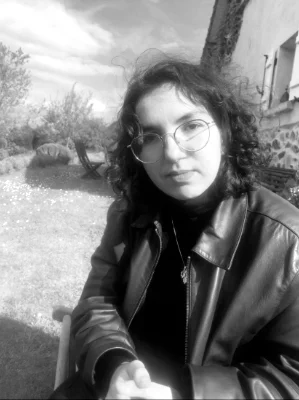
Alexia Levy-Chekroun is a PhD Candidate at the School for Advanced Studies in Social Sciences (EHESS) and the University of Lille. Her research, under the supervision of Sébastien Tank and Elad Lapidot, focuses on the articulation between the different « epistemic cultures » contained within Jewish thought, and their influence on the production of « judeo-decolonial » discourses. Her thesis is based on a multi-disciplinary framework including: sociology of knowledge, sociology of science, sociology of absences, and Jewish thought. She has studied Political Science at University Paris 1 Panthéon-Sorbonne and New York University ; and has been involved in queer/decolonial-mizrahi community organizing since 2019.
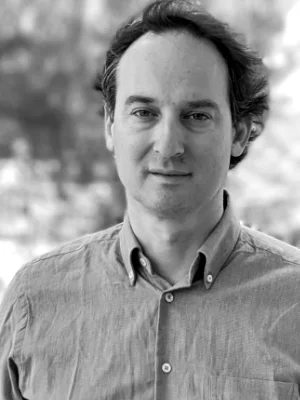
Dr. Cedric Cohen-Skalli teaches early modern and modern Jewish Philosophy at the University of Haifa. He is the director of the Bucerius Institute for the research of contemporary German History and Society. His research focuses on the relationship of Jewish thinkers to two main philosophical shifts: the shift from Medieval philosophy to early modern thought (14th-17thcentury), and the shift from early modern to modern thought (18th-20thcentury). He published several books and many articles on diverse aspects of Jewish thought and literature in the Renaissance as well as in 19th and 20th century German speaking world and diasporas. His intellectual biography of Isaac Abravanel was published in the prestigious “the great men of the Jewish people” series of the Zalman Shazar Center and translated and augmented for The Tauber Institute Series For Study of European Jewry (Brandeis University Press). He recently edited the volume Skepsis and Antipolitics: The Alternative of Gustav Landauer. He is also translator of many works of Freud, Benjamin, Scholem, Idel and Abravanel and head of the new Project: “The Revival of Philosophy in the 19th-Century and Early 20th-Century Middle East: An Untold Story.”
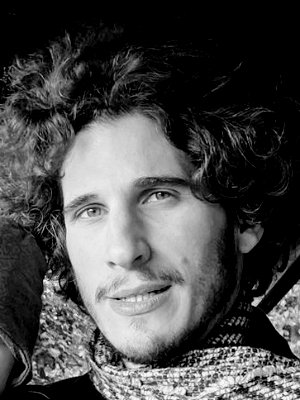
Matan Gurevitz is pursuing his Ph.D. on the intersections of anticolonial motives in Weimar and post-war French Jewish thought. He is an ELES research fellow and a member of the research group Revisiting Shared Traditions: Judaism and Islam in a post-secular Perspective at the Van Leer Jerusalem Institute. He studied music, musicology, and Jewish intellectual and cultural history at the Berlin University of the Arts (UDK), the Humboldt University in Berlin, the University of Heidelberg, and the School for Advanced Studies in the Social Sciences in Paris (EHESS).
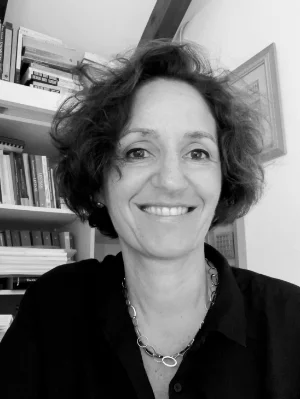
Annabel Herzog is professor of political theory and the head of the Cultural Studies Program at the School of Political Science at the University of Haifa, Israel. She is the editor of Hannah Arendt: Totalitarisme et banalité du mal (Paris: Presses Universitaires de France, 2011); the author of Penser autrement la politique (Paris: 1997), of Levinas’s Politics: Justice, Mercy, Universality (Philadelphia: University of Pennsylvania Press, 2020), and of many essays on ethics, politics, and hermeneutics. Her research focuses on the work of 20th-century philosophers, such as Emmanuel Levinas, Hannah Arendt, and Jacques Derrida; on contemporary Jewish philosophy; on the relation between philosophy and literature; on the dystopian imagination; on trauma and memory; on the relation between ethics and politics.
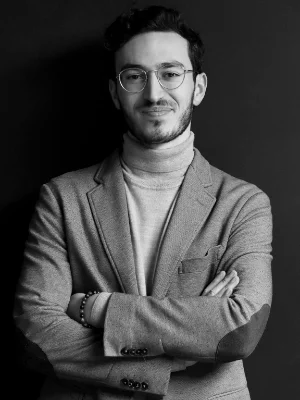
Aaron Lahmi, a former student of rabbinical schools (New York and Jerusalem), holds a master’s degree in Hebrew studies and a master’s degree in philosophy from Sorbonne University. Admitted to the “agrégation d’hébreu” competitive examination (session 2024), he is now a contract doctoral student at INALCO (Paris), where he is devoting his thesis to the “Guide for the Perplexed of our time” by Nachman Krochmal (Galicia, 1785-1840). His field of research lies at the confluence of rabbinic thought and modern philosophy.
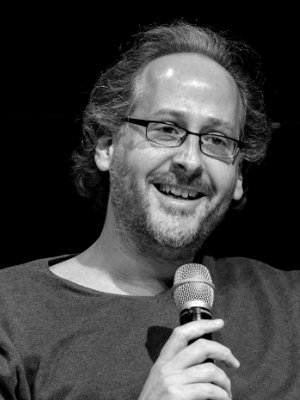
Elad Lapidot is professor for Culture Studies at the University of Lille, France. He specializes in philosophy, Jewish thought and Talmud and was teaching at the University of Bern, Switzerland, the Humboldt Universität Berlin and the Freie Univeristät Berlin. His work is guided by questions concerning the relation between knowledge and politics. Among his publications: Jews Out of the Question. A Critique of Anti-Anti-Semitism (SUNY Press, 2020), Hebrew translation with introduction and commentary of Hegel’s Phänomenologie des Geistes, Vol. 1 (Resling, 2020), Heidegger and Jewish Thought. Difficult Others, (Rowman & Littlefield, 2018), and Etre sans mot dire : La logiqe de ‘Sein und Zeit’ (Zeta Books, 2010).
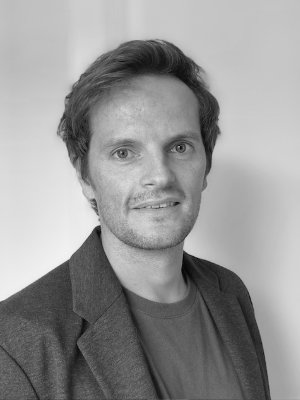
Quentin Le Gurun is a PhD candidate in philosophy at the University of Lille. His research, under the supervision of Prof Elad Lapidot, focuses on the postmodern Jewish question in the work of Emmanuel Levinas, Jacques Derrida and Benny Lévy, namely the epistemo-political stakes involved in the profound reconfiguration of the relation between philosophy and Judaism in French thought of the second half of the 20th-century. He previously studied at the School for Advanced Studies in Social Sciences (EHESS) in Paris, devoting his research to the meaning of prophecy in literature and philosophy in the context of Franco- Judaism, particularly in Charles Péguy, Bernard Lazare and James Darmesteter.
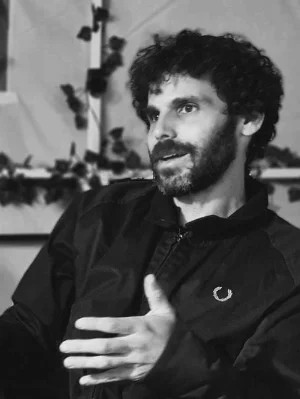
David Lemler is an Associate Professor in the Department of Arabic and Hebraic Studies at Sorbonne Université, Paris, where he teaches medieval Jewish thought and literature. His main research fields are medieval Jewish philosophy and the articulation between philosophy and exegesis. He dedicated a monograph, Création du monde et limites du langage. Sur l’art d’écrire des philosophes juifs médiévaux (Paris: Vrin, 2020), to the diverse writing strategies used by Jewish philosophers from Saadia Gaon to Hasday Crescas. His latest research focuses on the construction of the general idea of “Judaism” in Jewish thought from the Talmud to the modern period.
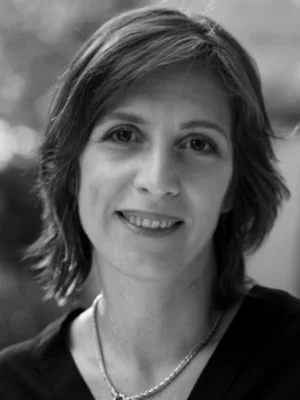
Dr. Sophie Nordmann teaches Philosophy, Ethics, and Jewish Thought in the Department of Religious Studies at the École Pratique des Hautes Études in Paris (PSL University).
A graduate of the École Normale Supérieure (Fontenay Saint-Cloud), she received her Ph.D. at the Sorbonne and her Habilitation at Paris Nanterre University. She also held appointments at the École Polytechnique (2007-2012) and the Collège International de Philosophie (2007-2013).
Her work focuses on Judeo-German Philosophy (H. Cohen, F. Rosenzweig, M. Buber) and on French contemporary Jewish thought (Emmanuel Levinas, André Neher, Paris School of Jewish Thought). Last published book: Phénoménologie de la transcendence. Livres I & II, éditions d’écarts, 2022.
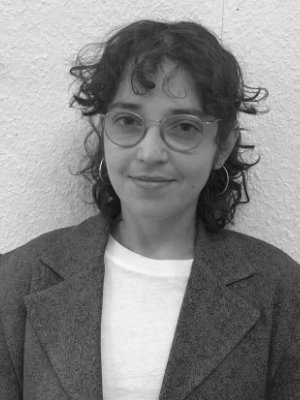
Rachel Pafe is a writer and researcher interested in modern German-Jewish thought between fiction and philosophy and interdisciplinary theories of mourning. Much of her work is based on collaboration across disciplines, including teaching, reading groups, and publication projects with artists, religious historians, philosophers, and game designers. She is the editor of three multidisciplinary collections of poetry, criticism, and fiction, Reading Scholem in Constellation (2021, Pseudo Press), Reading Taubes in Constellation (2022, Pseudo Press), and Reading Kofman in Constellation (2023, Pseudo Press) and currently a PhD candidate in modern Jewish philosophy at Goethe University of Frankfurt and University of Lille.
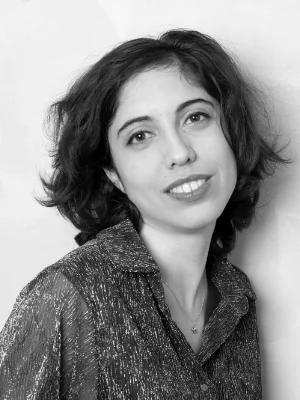
Aged 24, Gabrielle Pinchard is a 2nd-year Master-degree student at Sorbonne University in Jewish philosophy. She writes her Master thesis about Levinas and his unique conception of Scriptures and writing under Pr. David Lemler’s direction ; she peculiarly focuses on the links between Levinas’ original style and his own Jewish roots, not to mention the instrumental role of literature in his philosophical work. Aside from this universitary course, she has started studies in the medical field for two years, as a radiologist assistant, and has had a strong, enriching professional experience at hospital, a universe which has attracted her since she was a little child.
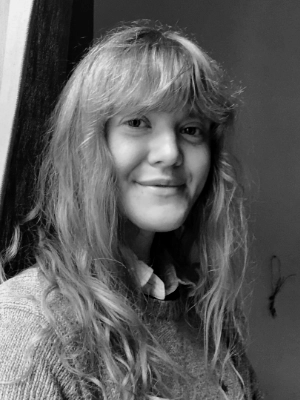
Sophie Pousette is currently pursuing doctoral studies in philosophy at Södertörns Högskola, Stockholm (Sweden), where she is a participant in the project ‘Experimenting with Tradition: The Life and Afterlife of 20th Century Jewish Intellectual Culture in the Baltic Sea Region’, which examines the encounter between Rabbinic-Hassidic thought and German Enlightenment philosophy. Her research interests include political theology and the interplay between (re)interpretations of Scripture and religious tradition and social and political critique.
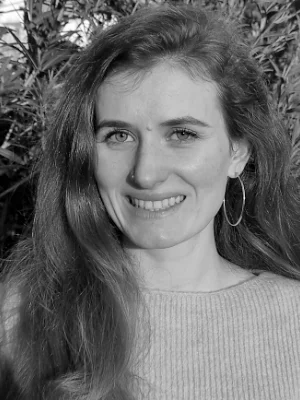
Julie Reich is a PhD candidate at the university of Lille under the supervision of Prof. Dr. Elad Lapidot. Her research focuses on the mutual influences of feminism and Jewish Thought and the way gender conceptions influenced political Jewish philosophy in the context of pre-war Germany and post-war France. She studied comparative literature and philosophy in Berlin, Madrid and Jerusalem.
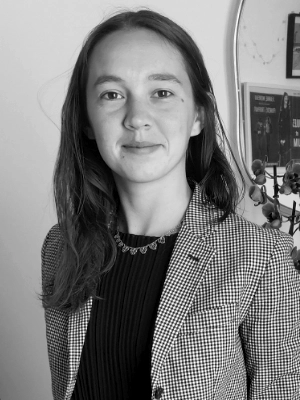
Lucile Salou is a doctoral student at the University of Lille. Her research focuses on the philosopher Emmanuel Levinas. She focuses on how the Jewish thinker attempts to think history after the tragedies of the twentieth century seem to have broken its course. To this end, she is interested in the points of encounter between so-called “Greek” philosophy and Talmudic thought.
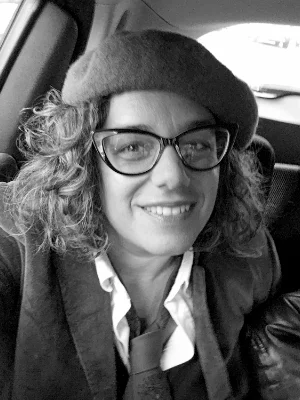
Dr. Gaelle Hanna Serero, enseignante au lycee Maimonide-Mikve Israel et chercheuse en philosophie et pensee juive, specialiste d’Andre Neher, de l’Ecole de Pensee Juive de Paris et de l’existentialisme juif (Univ Bar-Ilan), post-doc en sciences religieuses a Paris, EPHE-GSRL et Rome, univ La Sapienza sur le concept de temps chez Avraham Heschel, Andre Neher et Eliane Amado Levy-Valensi. Membre du centre de recherche sociologique sur les communautes juives de Bar-ilan, recherche en cours: Sur les traces du judaisme d’Algerie: Julien Zenouda, Alger-Paris-Netanya.
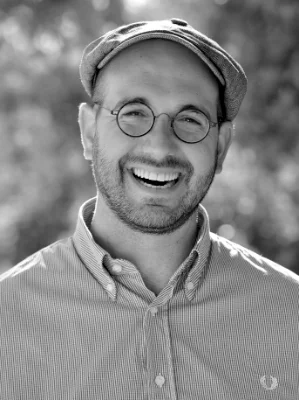
Ynon Wygoda est chercheur postdoctoral à l’Université de Toronto. Il a été membre de la Martin Buber Society of Fellows et chercheur au Centre Franz Rosenzweig à Jérusalem, ainsi que professeur invité à Rome et à Kassel. Il vient d’achever un manuscrit consacré à une étude comparée des philosophies de Rosenzweig et de Jankélévitch autour du discours du silence au XXe siècle. Il travaille actuellement sur trois projets : de nouvelles lectures philosophiques du Livre de Job ; une étude du Deutéronome à partir de la pensée et de la correspondance inédite entre Rosenzweig et Buber ayant conduit à leur traduction de la Bible ; et un ouvrage sur les tensions entre les dimensions théologique, politique et morale du pardon.
Program
| June 25 | |
| 9:00– 10:30 | Panel I |
| David Lemler (Sorbonne Université),Ynon Wygoda (Université de Toronto): Neher: la Bible et l’anti-philosophie | |
| 11:00–12:30 | Panel II |
| Annabel Herzog (Université de Haifa), Sophie Nordmann (EPHE): De Levinas à Derrida: (qu’en est-il de) l’actualité de Maïmonide? | |
| 12:30–14:00 | |
| Lunch | |
| 14:00–16:30 | Panel III |
| Cedric Cohen-Skalli (Université de Haifa), Elad Lapidot (Université de Lille): Penseurs juifs francophones et décolonisation du Maghreb | |
| 17:00–19:00 | Book Presentation |
| 19:30 | Dinner |
| June 26 | |
| 9:30–11:15 | Panel I |
| Rachel Pafe (University of Lille/University of Frankfurt): Holy Middles: Gillian Rose and Levinas Lucile Salou (University of Lille): War and History in Levinas’s Thought Gabrielle Pinchard (Sorbonne Université): From the Scriptures to writing: on Levinas’ art of writing | |
| 11:15–11:45 | |
| Coffee Break | |
| 11:45–13:00 | Panel II |
| Julie Reich (University of Lille): Margarete Susman and Franz Rosenzweig. Eros and Revolution Sophie Pousette (Södertörn): The Genre of Translation | |
| 13:00–14:30 | |
| Lunch | |
| 14:30–15:45 | Panel III |
| Aaron Lahmi (INALCO): The Guide for the Perplexed of Our Time by Nachman Krochmal and Medieval Jewish Philosophy Gaëlle Hannah Serero (EPHE-GSRL et Rome La Sapienza): La pertinence du Maharal d’André Neher après la Shoah | |
| 15:45–16:15 | |
| Coffee Break | |
| 16:15–18:00 | Panel IV |
| Quentin Le Gurun (University of Lille): L’au-delà du marxisme. Derrida, Benny Lévy Matan Gurevitz (University of Lille/University of Frankfurt): The Jew and the (Post-) Colonial State: Three Models of Jewish (Theo)politics after Benny Lévy, Albert Memmi, and Léon Ashkenazi Alexia Levy-Chekroun (Paris): Epistemologies of the South & the problematization of Jewish emancipations |



